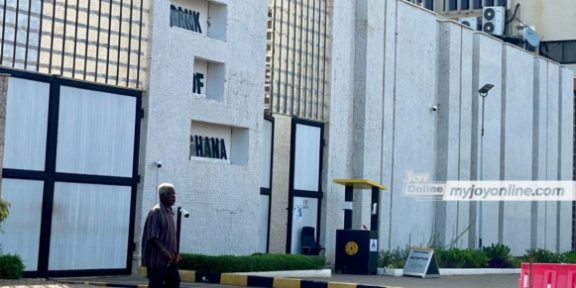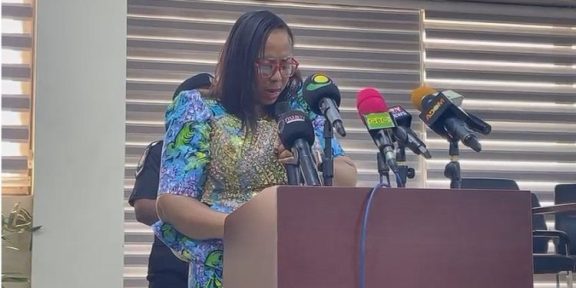Instead of trying to put out security fires, U.S. policy should focus on governance and growth.
The latest evidence that Washington needs a new Africa policy is on display in Niger. After many months of intense political jockeying, the United States’ security partnership with the country looks likely to end. Following a recent visit by Molly Phee, the U.S. assistant secretary of state for African affairs, and Gen. Michael Langley, the chief of the U.S. Africa Command, the Nigerien junta abruptly declared more than a decade of training and operational partnership to be over.
After new regimes in Mali, Burkina Faso, and Niger forced the French military out of the region, the U.S. military now risks becoming the next casualty in the spate of coups and violent insurgencies plaguing countries across a large swath of the continent. The pullout of U.S. forces from Niger—and the closure of the U.S.-funded air bases in its cities of Niamey and Agadez—would jeopardize Washington’s efforts to address transnational terrorist threats and other sources of instability in North and West Africa. The impact of such a strategic shift cannot be ignored.
Yet despite serious setbacks to security and political stability, the region has also shown signs of democratic strength that Washington should nurture as part of a new policy approach. On March 25, Senegal elected a new president, Bassirou Diomaye Faye, a 44-year-old leader of the opposition and a relative political unknown. Senegal can now emerge from the turmoil into which outgoing President Macky Sall threw the country when he attempted to cancel the elections three weeks before they were to take place, triggering widespread domestic protests and international alarm.
But on Feb. 17, the Senegalese Supreme Court annulled the cancellation and ordered the vote to be held “as soon as possible.” The region was bracing for one of Africa’s most important democracies to fall into authoritarianism, but instead, the rule of law and an engaged citizenry delivered a different outcome.
The strategic imperative for the United States is to support countries that foster democracy, such as Senegal, and prevent democratic backsliding, à la Niger. Much is at stake: Within 15 years, Africa is projected to have the world’s largest population of working-age adults, surpassing both China and India. By 2050, Africa will contain 25 percent of the global population, and Nigeria will surpass the United States to become the third-most-populous country in the world. Africa is already home to six of the world’s 10 fastest-growing economies. The continent’s abundant natural resources—including rare earth minerals—are not only a source of potentially immense wealth, but will also be crucial to the ongoing technological revolution.
The United Arab Emirates, China, and Britain pledged the most foreign direct investment in Africa in 2023—promising three to five times the amount from U.S. sources. The United States should finally begin investing at a scale commensurate with the continent’s great promise, as U.S. allies and adversaries alike have done.
Instead of pursuing overarching strategic goals in Africa, Washington has pursued circumscribed partnerships focused primarily on security cooperation while doing little to change the systemic factors driving instability. The approach has not worked: Violent extremism, state failure, malign foreign influence, and military rule have spiked, creating security threats to U.S. citizens, reducing bilateral trade, and fueling migration challenges that have affected U.S. partners in Europe. Without a more comprehensive policy that prioritizes security, better governance, and improved economic opportunities to foster stability, the United States will continue to cede influence to groups—such as the Islamic State—that are intent on exploiting instability in Africa for their own ends.
One of the urgent reasons for a new U.S. strategy is that Africa has become the global epicenter of transnational terrorism. In 2023, the continent accounted for nearly half of global deaths related to terrorism, the majority of which were in the Sahel countries, which include Nigeria. Perhaps no country feels the danger of violent extremism more acutely than Niger’s neighbor, Burkina Faso, where fighting between insurgent forces and the government led to nearly 8,000 deaths in 2023 in the once-quiet country.
This breakdown in security is the direct result of exclusionary governance practices. Numerous studies suggest that violent extremism proliferates when citizens do not feel that their basic needs are being met; have no say in determining their own futures; and are suffering at the hands of unaccountable, corrupt, and abusive governments. In places where the central government fails, traditional leaders have often stepped in to fill the gap, but in countries such as Mali and Niger, insurgents have co-opted or killed traditional leaders in order to take control of rural areas. In some cases, insurgent groups have assumed governing functions—such as mediating conflicts, an area in which these groups can provide a brutal if critical justice service that state actors have failed to supply.
As countries such as the Central African Republic and Mali search for new allies, Russia’s Wagner Group of mercenaries has used the opportunity to make itself an unsavory but locally welcomed security partner despite being implicated in allegations of corruption and human rights abuses.
Despite these negative developments, there is reason to hope that the governance reforms needed to turn the situation around would be welcomed by citizens in Africa. According to independent research network Afrobarometer, democracy remains the most popular form of government in Africa, with 66 percent supporting it across 36 countries polled. And while at first blush it may seem alarming that 53 percent of Africans—and an even higher share among the young—would support a military intervention if a government abuses its power, this data point suggests that Africans are not prepared to tolerate democracy in name only. It must deliver for them.






























